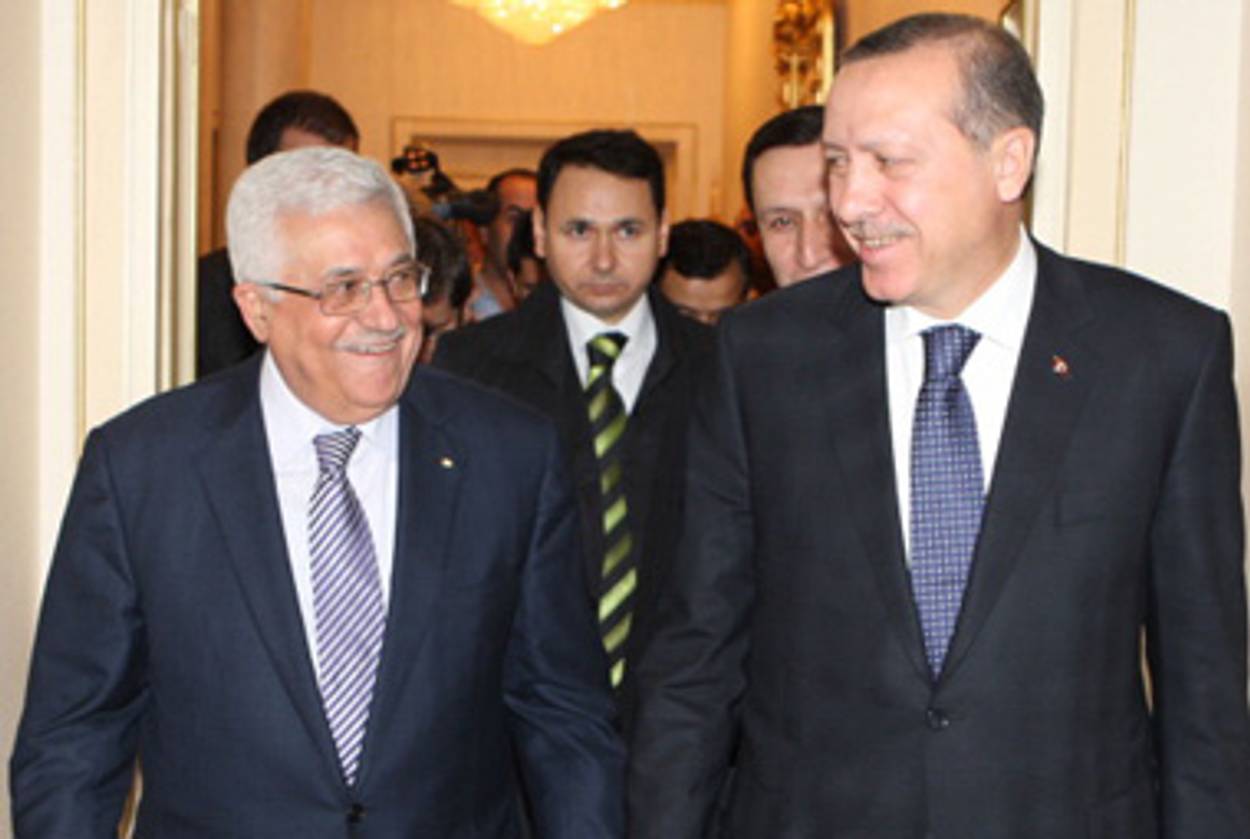Have Israel and Turkey Reached Détente?
Syria has driven them closer; will Flotilla 2 tear them back apart?




Like two people who bond over loathing of a third, Israel and Turkey, longtime allies turned increasingly rancorous rivals, have been brought back closer together during the past couple months over shared fears of instability in Syria, where President Bashar Assad continues to violently suppress domestic protesters. They’re not exactly close pals; newly re-elected Prime Minister Erdogan only last week vowed to support the unilateral Palestinian drive for statehood. But when you have right-wing deputy foreign minister Danny Ayalon apologizing for his humiliation of the Turkish ambassador last year—Ayalon famously had him sit in a low chair; last week, a Turkish journalist asked to have her picture taken with Ayalon in a small chair, and he agreed—you know there is thaw. And for Israel, thawed relations with really the only other non-Arab country in the region in the midst of the Arab Spring is a good thing.
Interestingly, Turkey actually likely feels more threatened by Syrian instability than Israel. Thousands of refugees have streamed across the border, mainly into a province that is actually disputed by Syria and populated by many non-Turks with relations to Assad’s Alawite sect, so that the influx of Assad-hating Sunni Arabs makes the situation particularly volatile.
Of course, this rapprochement is taking place right at what could be the most sensitive time for Israeli-Turkish relations to date. The flotilla last year, which received the Turkish government’s tacit approval and which was led largely by Turkish citizens, was the lowpoint of Israeli-Turkish relations, or would have been until, potentially, this year’s. But instead, IHH, the Turkish charity that was Flotilla 1’s ringleader, has bowed out this year; Turkey is working with Israel to tone down a U.N. report on last year’s raid; and Prime Minister Netanyahu reportedly came extremely close to apologizing for the raid last year, which caused nine deaths, halting only due to domestic political considerations. So for all the progress made in the crucial area of Israeli-Turkish relations, what is really going to forge their direction is what happens in the next week.
Syrian Crisis Warms Turkey-Israel Ties [WSJ]
Ayalon to Turkey: I Never Intended to Humiliate Your Ambassador [Haaretz]
Turkey Concerned Syrian Border Tension Could Escalate Into Violent Clashes [Haaretz]
Will Syria’s Revolt Disrupt the Turkish Borderlands? [NYRBlog]
Israeli Official: Turkey Wants the U.N. to Tone Down Report on Gaza Flotilla Raid [Haaretz]
Earlier: The Turkey To-Do: Turkey Wins, Israel Loses
Marc Tracy is a staff writer at The New Republic, and was previously a staff writer at Tablet. He tweets @marcatracy.